International Relations

PUBLISHER PRIZE 2025 FOR GERLACH PRESS
2025-10
Gerlach Press is delighted and proud to have been awarded the German Publisher Prize 2025, which is presented by the Federal Government's Secretary for Culture. The main criteria for the jury's decision were an innovative publishing programme, the quality of publishing work, and a particularly appealing design of the books. We would like to thank all our authors who are the very foundation of our success, and hope that this recognition will further strengthen the press. Ad multos annos!...
more »
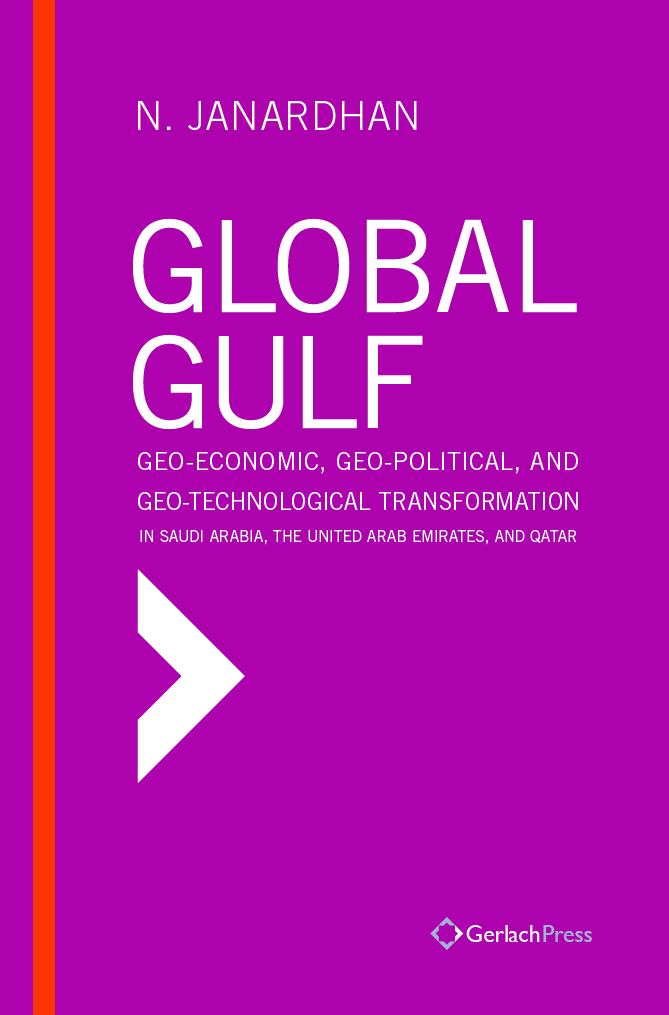
N. Janardhan
GLOBAL GULF
Geo-Economic, Geo-Political, and Geo-Technological Transformation in Saudi Arabia, the United Arab Emirates, and Qatar
2026-05
It is common knowledge that ‘great powers’, especially the United States and China, exert economic, political and military dominance over the world. But several middle powers, including those in the Gulf region, particularly Saudi Arabia, the United Arab Emirates and Qatar, are changing tack. They are increasingly exerting influence through several Cs: crude (oil), capital, commerce, collaboration, cyber (technology), climate, connectivity, competition, and compromise. The chapters of this book argue that the abovemention...
more »
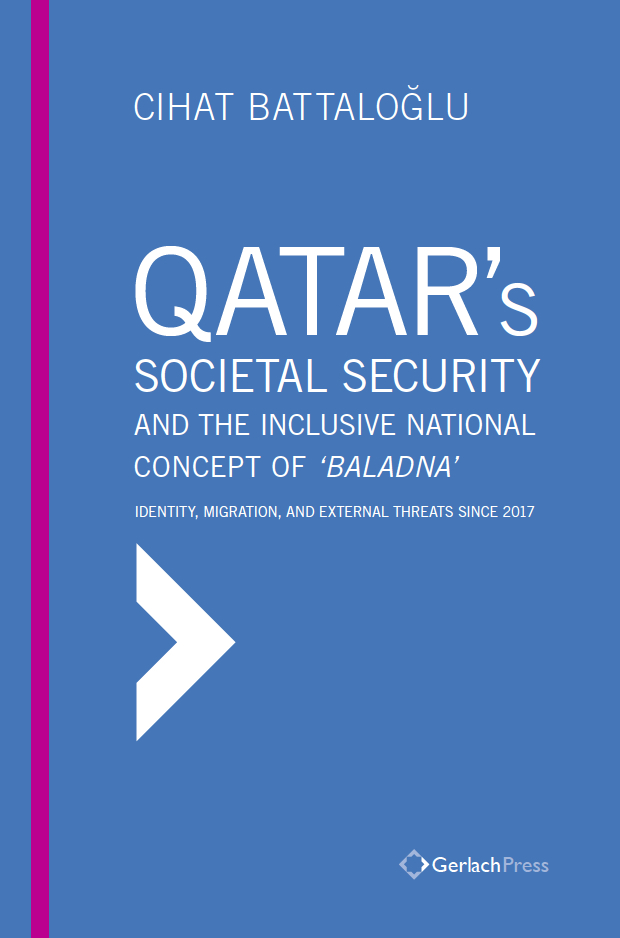
Cihat Battaloğlu
Qatar’s Societal Security: Towards the Inclusive National Concept of ‘Baladna’
Identity, Migration and External Threats Since 2017
2026-04
Since the 1990s, Qatar has been expanding its concept of societal security to address migration as a presumed threat to national identity. Local citizens regarded communities of migrants increasingly as a threat to existing cultural and linguistic norms, and as a challenge to the country's traditional “we”. The crisis of 2017, which isolated Qatar through a regional blockade, fundamentally changed the perception of the country's societal security. In response, Qatar turned ‘Baladna’ (‘our country’) into a symbol ...
more »
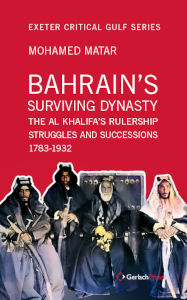
Mohamed Matar
Bahrain’s Surviving Dynasty
The Al Khalifa’s Rulership Struggles and Successions 1783-1932
2023
The Al Khalifa of Bahrain is a long-standing dynasty that has established dispute resolution measures to overcome intra-tribal ambitions for power and wealth, replacing extra-constitutional rulership succession with primogeniture. Since their control over Bahrain began in 1783 until the British withdrawal from the Gulf in 1971, the Al Khalifa introduced ten senior ruling shaykhs, seven of whom experienced turbulent successions, and faced in-house rivalries and power-seeking disputes. This book provides valuable insights int...
more »
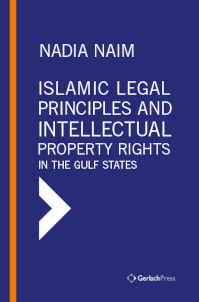
Nadia Naim
Islamic Legal Principles and Intellectual Property Rights in the Gulf States
2023
The book focuses on the relationship between Islamic law and intellectual property law and proposes groundbreaking alternatives to better support the growth of intellectual property in line with the Islamic moral economy. The author provides an overview of the development of intellectual property under Shariah principles in the Gulf States. She focuses on how the US and the EU have shaped the intellectual property regimes in the Gulf States, the WTO and WIPO in the pre-TRIPS era, and compliance with the minimum standards o...
more »
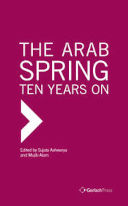
Sujata Ashwarya, Mujib Alam
The Arab Spring: Ten Years On
2022
It has been a decade since people across the Arab world rose up in revolt against their governments in 2010/11, demanding political empowerment, social reform and economic improvement. Pro-democracy protests, as they were called in common parlance, which spread rapidly through the mobilisation of social media calls, ended up overthrowing long-standing authoritarian regimes in Tunisia, Egypt, Yemen and Libya. That gave rise to hope for a more representative future, as well as economic reforms, after decades of mismanagemen...
more »
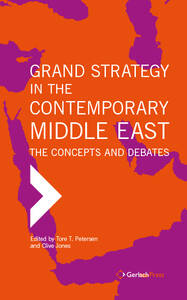
Tore T. Petersen, Clive Jones
Grand Strategy in the Contemporary Middle East
The Concepts and Debates
2022
This unique volume explores the role that Grand Strategy has played in the shaping of the Middle East and why, conceptually, its core principles still have traction in explaining the shifting alliances and dispensation of power across the region. When so much of the spatial as well as the geo-political boundaries of the Middle East are in flux, it is now time to revisit the very ideas that inform Grand Strategy that once again, are enjoying a wider intellectual renaissance in world affairs. Through a longitudinal met...
more »
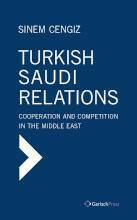
Sinem Cengiz
Turkish-Saudi Relations: Cooperation and Competition in the Middle East
2020
Are the Middle East’s two heavyweights, Turkey and Saudi Arabia, friends or foes? What are the main drivers behind their rivalry or cooperation? The nature of their relationship has region-wide repercussions, affecting the calculations of both regional and global actors. This book is the first to offer a comprehensive and nuanced examination of the main drivers in the complex relationship between Turkey and Saudi Arabia, focusing on the role of domestic, regional and international dynamics. Three decades are examined: the ...
more »
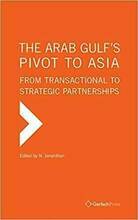
N. Janardhan
The Arab Gulf’s Pivot to Asia:
From Transactional to Strategic Partnerships
2020
Over the last two decades the relations between the countries of the Gulf and Asia have expanded beyond the economic domain to include political and even security arrangements. While oil and non-oil trade are still the fulcrum of their association, ‘strategic’ partnerships are fast becoming the norm. The contributors of this book argue that, along with economic diversification, the Gulf countries have also diversified their foreign policies, especially with China, India, Japan and South Korea, among others. Together with Ru...
more »
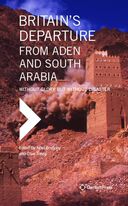
Noel Brehony, Clive Jones
Britain’s Departure from Aden and South Arabia:
Without Glory but Without Disaster
2020
Britain’s hasty departure from Aden and South Arabia after 128 years has often been presented as a humiliation at best and a disaster at worst. London’s hopes of handing power and sovereignty over to a friendly federal regime collapsed in the face of a nationalist uprising backed that enjoyed the support of Egypt. Five decades after the final British troops left Aden, academic experts and former British officials directly involved in the events that unfolded critically reflect on British withdrawal from South Arabia, the po...
more »
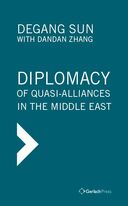
Degang Sun, Dandan Zhang
Diplomacy of Quasi-Alliances in the Middle East
with a foreword by Tim Niblock
2020
Quasi-alliance refers to the ideation, mechanism and behavior of policy-makers to carry out security cooperation through informal political and security arrangements. As a “gray zone” between alliance and neutrality, quasi-alliance is a hidden national security statecraft. Based on declassified archives and secondary sources, this book probes the theory and practice of quasi-alliances in the Middle East. Four cases are chosen to test the hypotheses of quasi-alliance: - the Anglo-French-Israeli quasi-alliance during the Suez...
more »
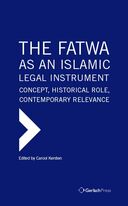
Carool Kersten
The Fatwa as an Islamic Legal Instrument: Concept, Historical Role, Contemporary Relevance
Set, Volumes 1-3
2018
One of the most misunderstood aspects of Islamic legal practice and thought is the role and position of fatwas or legal opinions. This three-volume reference work offers a comprehensive overview of and detailed insights into - the concept of the fatwa as a vehicle of legal opinion-making in Islam - its historical role in different parts of the Muslim world - and contemporary debates reflecting both the fatwa's enduring relevance and its ongoing contestation among Muslims today....
more »
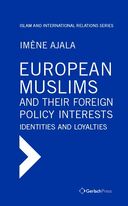
Imène Ajala
European Muslims and their Foreign Policy Interests: Identities and Loyalties
2018
In a global context marked by terrorist threats, Muslim communities in the West have come under increasing scrutiny. Sensitive questions on identity arise with regard to their foreign policy interests and their loyalties. Topics covered include: - Relations between European Muslims and international issues - Political opportunity structures - Organization and institutionalization of Islam - Diaspora and transnational dimensions - The securitization of Islam - Foreign policy and loyalty This book investigates the foreign pol...
more »
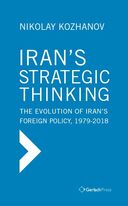
Nikolay Kozhanov
Iran’s Strategic Thinking:
The Evolution of Iran’s Foreign Policy, 1979-2018
2018
What are the ideological motives behind Iran’s foreign policy? This new study examines Tehran’s twin desires to protect national interests and to project real power. Factors determining Iran’s foreign policy include: - Potential economic leader of the Middle East region - Key player in the oil and gas market - Centre of resistance against global Western domination - US and Israel policy - Syria as the bridge to Lebanon and Palestine There is a strong focus on primary sources, as well as interviews with EU, Russian and Middle...
more »
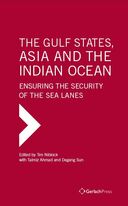
Tim Niblock, Talmiz Ahmad, Degang Sun
The Gulf States, Asia and the Indian Ocean: Ensuring the Security of the Sea Lanes
2018
Among the many strategic and economic issues facing the Gulf in the coming years, those relating to the Indian Ocean are set to be among the most challenging. In the re-ordering of global economic and political power which is currently underway, the Indian Ocean constitutes a key arena for regional and global competition and rivalry. With the leading Asian powers playing a more pro-active role in the region, sometimes with conflicting ambitions, and the United States intent on maintaining its established maritime hegemony th...
more »
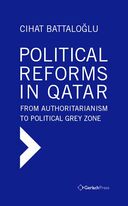
Cihat Battaloglu
Political Reforms in Qatar: From Authoritarianism to Political Grey Zone
2018
In the past decade, Qatar has emerged as one of the world’s most proactive mediators in the international arena. It has also experienced a number of domestic changes to its economic infrastructure, welfare system and political system, along with material improvement in its citizens’ standard of living. Nonetheless, despite such radical and rapid advances, political reform in Qatar has proved to be relatively tentative. This book examines political reforms in Qatar from an analytical, normative and ideological perspective. It...
more »
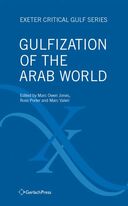
Marc Owen Jones, Ross Porter, Marc Valeri
Gulfization of the Arab World
2018
From projecting ideology and influence, to maintaining a notion of ‘Gulfness’ through the selective exclusion or inclusion of certain beliefs, cultures and people, the notion of Gulfization is increasingly pertinent as Gulf countries occupy a greater political and economic role in wider Middle East politics. This volume discusses the notion of Gulfization, and examines how thoughts, ideologies, way of life and practices are transmitted, changed, and transduced inside and outside the Gulf. From historical perspectives such as...
more »
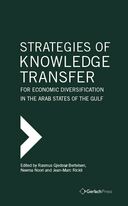
Rasmus Gjedssø Bertelsen, Neema Noori, Jean-Marc Rickli
Strategies of Knowledge Transfer for Economic Diversification in the Arab States of the Gulf
2017
Diversification is the principal economic objective for the Gulf States. The steep and sustained fall in oil prices over the last few years has added to the collective urgency to seek new sources of revenue. As such, the overriding theme of regional economic summits in recent years has focused on the question, “how do we transition to a knowledge-based economy?” This is the central question taken up by the contributors to this volume. A growing body of literature has begun to address how state policy in conjunction with univ...
more »
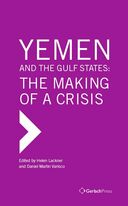
Helen Lackner, Daniel Martin Varisco
Yemen and the Gulf States: The Making of a Crisis
2017
Yemen is the only state on the Arabian Peninsula that is not a member of the GCC (Gulf Cooperation Council). It is also the only local state not ruled by a royal family. Relations between Yemen and the GCC states go back for centuries with some tribes in Saudi Arabia, Kuwait, Qatar, the United Arab Emirates and Oman tracing genealogy back to ancient Yemen. In this timely volume six scholars analyze Yemen’s relations with Saudi Arabia, the United Arab Emirates, Oman and Iran with a focus on recent developments, including the ...
more »
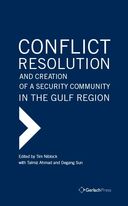
Tim Niblock, Talmiz Ahmad, Degang Sun
Conflict Resolution and Creation of a Security Community in the Gulf Region
2017
The bitter confrontation between Saudi Arabia and Iran is not only stoking conflicts in Syria, Iraq and Yemen, but now threatens the stability, security and well-being of the whole Gulf region. All the major global powers have significant interests in this area, and the pursuit of these interests adds further layers of division and conflict. This book goes to the heart of this issue, examining the critical modalities whereby the "Gulf Cold War" can be brought to an end. What is needed, the contributors argue, is th...
more »
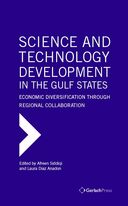
Afreen Siddiqi, Laura Diaz Anadon
Science and Technology Development in the Gulf States:
Economic Diversification through Regional Collaboration
2017
The Arab states of the Gulf, currently heavily reliant on oil and gas exports, have stated their intention to promote economic diversification and have embarked on reforming existing institutions for higher education, scientific research, and technology innovation. The region has witnessed huge population growth in recent decades, and in some cases (e.g. Saudi Arabia) almost half the population is under the age of twenty-five and in need of access to quality education and meaningful employment opportunities. This book provid...
more »
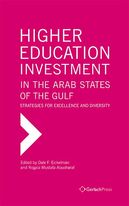
Dale F. Eickelman, Rogaia Mustafa Abusharaf
Higher Education Investment in the Arab States of the Gulf:
Strategies for Excellence and Diversity
2017
Over the last half-century, the GCC states have invested on a huge scale in higher education, but the stated commitment to internationally recognized excellence has also to come to terms with tradition. These pressure points are examined here in a number of comparative studies, and cover among other topics: higher education as soft power to promote regional or global influence, intense reliance on foreign instructors, citizen entitlements, badu and hadar divisions, gender separation, different visions of language of instruct...
more »
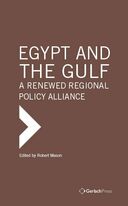
Robert Mason
Egypt and the Gulf: A Renewed Regional Policy Alliance
2017
Egypt continues to be cultural and political beacon in the Middle East. Its control of the Suez Canal, cold peace with Israel, concern about Gaza, mediation and interest in the Israel-Palestine conflict, and the marginalization of the Muslim Brotherhood are all points of significance. There is a close, and expanding, defence and security relationship between Egypt and the GCC states, most evident in the inclusion of Egypt in Saudi Arabia's new Sunni counter-terrorism alliance. The authors of this book contextualise hist...
more »
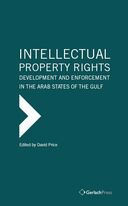
David Price, Alhanoof AlDebasi
Intellectual Property Rights: Development and Enforcement in the Arab States of the Gulf
2017
This volume includes a range of topics addressing aspects of the current status of intellectual property (IP) protection regimes in the Gulf Cooperation Council and its individual member states, and aspiring GCC members Jordan and Yemen. It examines the opportunities and challenges facing the GCC in becoming a real union with common, or at least harmonized, IP laws and regulations, while still allowing flexibility for domestic imperatives and interests. IP is a crucial part of commercial and trade activity which the GCC need...
more »
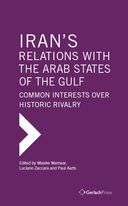
Maaike Warnaar, Luciano Zaccara, Paul Aarts
Iran's Relations with the Arab States of the Gulf:
Common Interests over Historic Rivalry
2016
GCC-Iran relations are at the heart of important political dynamics in the Middle East today. This is not limited to the ongoing disputes in the Gulf, one of the most important strategic locations globally. Iran and the GCC states also find themselves on opposing sides.in the Syrian and to some extent the Iraqi conflicts. This volume traces the origins of the troubled relations between Iran and the majority of the GCC monarchies. It discusses not only geostrategic rivalries, but also matters of identity which have been of in...
more »
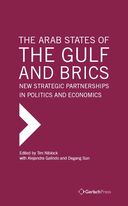
Tim Niblock, Degang Sun, Alejandra Galindo
The Arab States of the Gulf and BRICS:
New Strategic Partnerships in Politics and Economics
2016
How the Gulf Cooperation Council (GCC) relates to BRICS (Brazil, Russia, India, China, and South Africa) is, in the light of the growing strength and importance of this organisation and the countries which comprise it, of critical importance. The issue is not simply how the GCC countries handle their relations with the individual BRICS countries, but more importantly how they relate to an alternative structure of coordination and perhaps power in the global order. Their established links and alliances may no longer be enough...
more »
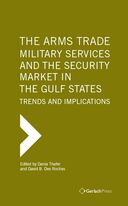
David B. Des Roches, Dania Thafer
The Arms Trade, Military Services and the Security Market in the Gulf States: Trends and Implications
2016
The Gulf is in the first rank of potential global flashpoints. It is the largest market for weapons imports in the world, and is considered to be a vital interest of all the great powers. Iran is viewed as an expansionist threat by the Arab states of the Gulf, who have built considerable militaries in a historically short timeframe. Security in the Gulf, however, is a complicated matter. The Arab states of the Gulf have pursued different defense policies as well as different ways of building up their forces. In some instance...
more »
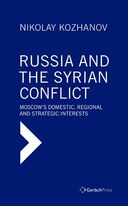
Nikolay Kozhanov
Russia and the Syrian Conflict:
Moscow’s Domestic, Regional and Strategic Interests
2016
This book is the first to offer a comprehensive survey of Moscow’s foreign policy interests in Syria. The author considers the Kremlin’s diplomacy on Syria within the broader system of Russian foreign policy in the Middle East; he analyses the influence of Russian domestic dimensions on Moscow’s approaches to the subject; and he considers how Moscow’s priorities in Syria have evolved during the last five years and what factors influenced this evolution. Key factors considered include: - Russian presence in the Middle East be...
more »
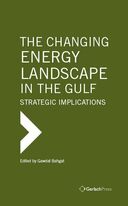
Gawdat Bahgat
The Changing Energy Landscape in the Gulf:
Strategic Implications
2015
Extreme fluctuations in oil prices (such as the dramatic fall from mid-2014 into 2015) raise important strategic questions for both importers and exporters. In this volume, specialists from the US, the Middle East, Europe and Asia examine the rapidly evolving dynamic in the energy landscape, including renewable and nuclear power, challenges to producers including the shale revolution, and legal issues. Each chapter provides in-depth analysis and clear policy recommendations....
more »

Steven W. Hook, Tim Niblock
The United States and the Gulf:
Shifting Pressures, Strategies and Alignments
2015
The Gulf region’s relations with the outside world are changing radically. The Gulf’s major trading partners are now no longer predominantly Western. China, in particular, now has a significant stake and highly critical interests in the region. The United States still dominates the security field, yet its Gulf allies have come to doubt the strength of US commitment. Meanwhile the Arab monarchies of the Gulf are struggling to cope with multiple divisions, problems and threats: the radical forces of change unleashed by the Ara...
more »
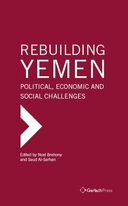
Noel Brehony, Saud Al-Sarhan
Rebuilding Yemen:
Political, Economic and Social Challenges
2015
As Yemenis start planning the reconstruction and rebuilding of their country after recent turmoil they face huge challenges in every major sphere. This book discusses the political and economic background and analyses the most important issues: - the option of improved governance through a federal government - addressing the powerful and patronage networks of the previous regime - investing in Yemen’s human and natural resources to compensate for falling revenues from oil and gas - maintaining rural life through reduced depe...
more »
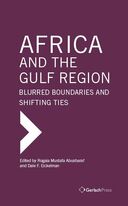
Rogaia Mustafa Abusharaf, Dale F. Eickelman
Africa and the Gulf Region:
Blurred Boundaries and Shifting Ties
2015
The ties that bind Africa and the Gulf region have deep historical roots that influence both what Braudel called the longue durée and the short-term events of current policy shifts, market-based economic fluctuations, and global and local political vicissitudes. This book, a collaboration of historians, political scientists, development planners, and a biomedical engineer, explores Arabian-African relationships in their many overlapping dimensions. Thus histories constructed from the “bottom up” – records of the everyday act...
more »
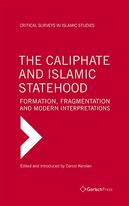
Carool Kersten
The Caliphate and Islamic Statehood: Formation, Fragmentation and Modern Interpretations
Set, 3 volumes
2015
Although the Caliphate was formally abolished ninety years ago, it had already ceased to exist as a unitary and effectively administered political institution many centuries earlier. The ever widening gap between political ideal and historical reality is also reflected in the varying conceptualizations and theories of the Caliphate developed by Islamic religious scholars and Muslim intellectuals past and present. However, recent events in the Islamic world show that the idea of a Caliphate still appeals to Muslims of varying...
more »
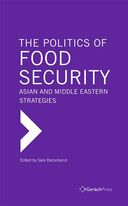
Sara Bazoobandi
The Politics of Food Security: Asian and Middle Eastern Strategies
2014
The international food system is increasingly at risk. Increasing demand, limited and diminishing resources and rising volatility are putting new pressures on the agriculture sector globally. One of the growing critical threats to global stability and security is the inadequacy of food resources. This threat,exacerba-ted by global population growth, is illustrated by shifts in consumption patterns toward protein-rich diets and the growth of multinational food retail, which bring about a greater reliance on food imports. This...
more »
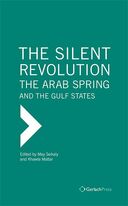
May Seikaly, Khawla Mattar
The Silent Revolution: The Arab Spring and the Gulf States
2014
How immune is the Gulf region to the changes that have engulfed the Arab world since 2011? This volume responds to this question by examining the impact of the Arab Spring on Gulf regimes and societies and contributing to debates on political participation and citizenship; sectarianism, gender and identity formation; as well as the role of the media in exposing the paradoxes of the Gulf system and its relationship to international political actors....
more »
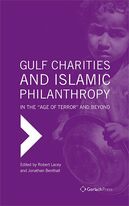
Robert Lacey, Jonathan Benthall
Gulf Charities and Islamic Philanthropy in the "Age of Terror" and Beyond
2014
Gulf Charities and Islamic Philanthropy in the "Age of Terror" and Beyond is the first book to be published on the charities of Saudi Arabia and the Arabian Gulf, covering their work both domestic and international. From a diversity of viewpoints, the book addresses: The historical roots of Islamic philanthropy in religious traditions and geopolitical movements The interactions of the Gulf charities with "Western" relief and development institutions - now under pressure owing to budgetary constraints Num...
more »

Ranjit Gupta, Abubaker Bagader, Talmiz Ahmad, N. Janardhan
A New Gulf Security Architecture:
Prospects and Challenges for an Asian Role
2014
This book explores how growing economic ties between Asian countries and the Gulf Cooperation Council (GCC) could impact their future relationship. It postulates that the stage is now set for strategic partnerships and highlights how some Asian countries have been explicit about showcasing their power and influence in the Gulf region. While exploring an alternative and broad-based security architecture, it identifies the challenges that any probable Asian cooperative approach could face as the countries of the Arabian Gulf s...
more »

Giacomo Luciani, Rabia Ferroukhi
Political Economy of Energy Reform:
The Clean Energy-Fossil Fuel Balance in the Gulf States
2014
Climate change requires coordinated global responses. All nations, including major Gulf Arab oil producers, should implement policies to contain greenhouse gas (GHG) emissions. Yet all realistic scenarios point to the continuing global need for fossil fuels. The countries of the Gulf Cooperation Council (GCC) thus face a dilemma between continuing development and use of their fossil fuel endowments and increasing reliance on low carbon sources, such as nuclear, solar or wind. This book explores various facets of the dilemma....
more »
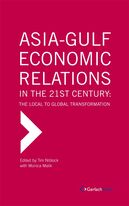
Tim Niblock with Monica Malik
Asia-Gulf Economic Relations in the 21st Century. The Local to Global Transformation
2013
Asia constitutes the hub of the transformation of global economic power today. The Gulf, itself part of Asia, is of increasing importance in this transformation. This book documents the growing interactions between the economies of the Gulf states and those of the rest of Asia. These relationships are critical to how the world economy develops over the next decade, and how economic (and perhaps strategic) power is distributed. This volume assembles cutting-edge thinking by 16 specialists on a wide variety of topics covering ...
more »
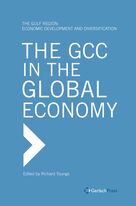
Richard Youngs
The GCC in the Global Economy
2013
Changing geopolitical realities have seen the Gulf region turning to Asia and Africa to build new economic links, while strengthening old ones. This proactive internationalism is visible not just in economics and energy, but also in politics and security where a host of new agreements has been developed. This work provides an overview of the ways in which the GCC states now need to move ahead with reforms that will reflect issues such as raised expectations from a period of high revenues and the region's demographics. T...
more »
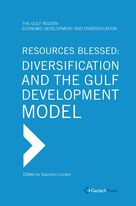
Giacomo Luciani
Resources Blessed: Diversification and the Gulf Development Model
2013
The Gulf countries have adopted a unique combination of policies to encourage diversification with largely positive results, while there are significant distinctions between the individual cases. This work evaluates various examples to show the extent to which the Gulf economies have diversifed to date, and how results can be measured, taking into consideration factors such as composition of GDP or exports; government services; and the categorization of industrial activities downstream of resources extraction (oil refining, ...
more »
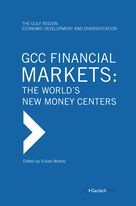
Eckart Woertz
GCC Financial Markets: The World's New Money Centers
2013
Bond markets in the GCC countries are underdeveloped, and the capital mix is heavily skewed towards banks, while ambitious development plans in fields like petrochemicals and infrastructure, as well as a rapidly growing population, create an increased need for finance. This study outlines the structure of various segments of GCC financial markets and points to regulatory challenges and future developments, ranging from capital market structures to the planned GCC Monetary Union, Islamic banking, and sovereign wealth funds. T...
more »
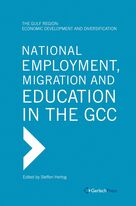
Steffen Hertog
National Employment, Migration and Education in the GCC
2013
This volume provides a cross-cutting analysis of the policy challenges related to GCC labor markets. It analyzes the different dimensions of segmentation of these markets, factors of change influencing labor supply such as trends in education and demography, as well as the impact of potential future reforms in areas such as immigration policy, labor sponsorship, taxation and minimum wages. The work therefore provides an overview of what arguably will be the core socio-economic challenge for the GCC in the coming years....
more »
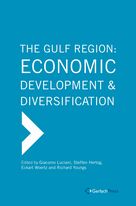
Giacomo Luciani, Steffen Hertog, Eckart Woertz, Richard Youngs
The Gulf Region: Economic Development & Diversification.
Set, Volumes 1-4
2012
The four volumes in this major research collection address the key economic issues which affect the future development and diversification of the member states of the Gulf Cooperation Council (GCC), namely Saudi Arabia, Kuwait, Bahrain, Qatar, UAE and Oman. Specifically, this recent research covers Economic Diversification, Development of Global Partnerships, Labor Markets and Migration, and Financial Markets as Global Players The work brings together state-of-the-art analysis by some 40 international scholars who participat...
more »



